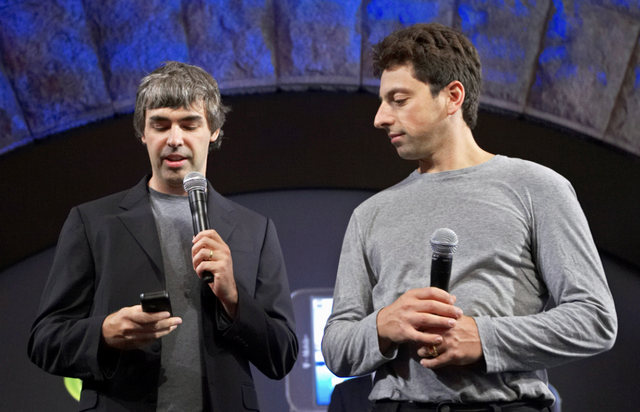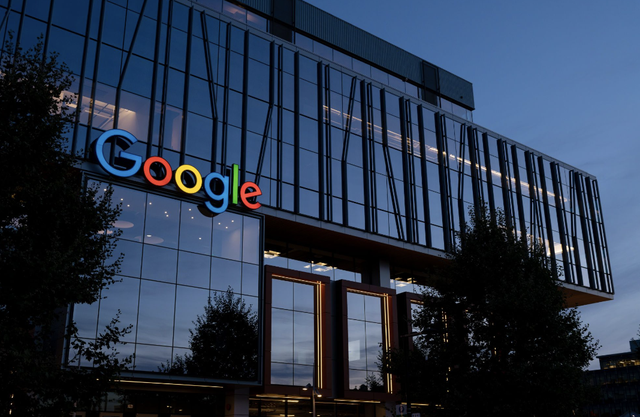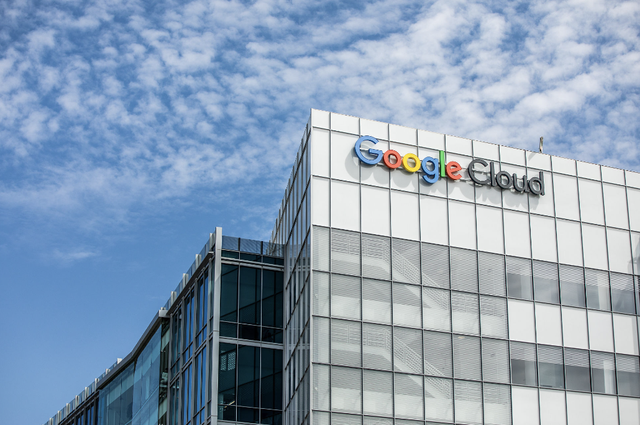Google Plays Its 'Trump Card' with $3.86 Trillion, Making a Resurgence Against Microsoft and NVIDIA
![]() 11/28 2025
11/28 2025
![]() 414
414
The global AI landscape has entered what some might call a 'bubble' phase.
Amidst market skepticism, certain investors choose to overlook potential risks and persist in boosting their investments. Conversely, others decide to step back temporarily to safeguard their profits.
Irrespective of the path chosen, AI has emerged as a unanimous point of agreement in the global capital market. With ongoing investments from tech behemoths worldwide, AI applications are steadily replacing traditional businesses and evolving into the integrated applications of the future.
Against this backdrop, NVIDIA takes the lead, with Microsoft also securing its foothold in the AI era through OpenAI. Meta, Amazon, and other tech giants are not far behind, increasing their capital outlays to bolster their competitive edge.

The most unexpected move in the market comes from the seasoned internet giant, Google.
Recently, Alphabet's subsidiary, Google, unveiled its latest AI model, Gemini 3. Subsequently, the Gemini 3 series models dominated multiple international benchmarks across three primary AI model pathways: multimodal, reasoning, and Agent.
It is reported that while Gemini 3 Pro fell slightly short of GPT-5.1 and Claude Sonnet 4.5 in programming capability tests, it overwhelmingly outperformed in other mainstream international test projects.
Following the model's release, Google's market valuation soared to an all-time high.
Remarkably, Berkshire Hathaway acquired Google shares at a premium. According to Berkshire's latest holdings report, the company purchased approximately 17.85 million Google shares in the third quarter, with a market value of around $4.34 billion, constituting 1.62% of its total holdings and ranking tenth in its portfolio.
Berkshire's recent acquisition has significantly 'propelled' Google's stock price. As is widely known, Warren Buffett has repeatedly expressed his optimism about Google. However, due to his investment philosophy and 'aversion' to tech stocks, Buffett refrained from investing in Google. In the post-Buffett era, Berkshire's leadership has clearly shown a keen interest in tech stocks, with the high-value purchase of Google shares serving as the best evidence.
In reality, for Berkshire, the available tech giants for investment are not cheap. Despite having substantial cash reserves, its options in tech stocks are somewhat constrained.
'Low-Profile' Google
In this round of AI competition, the market's attention has primarily focused on OpenAI and NVIDIA.
Consequently, the impact of soaring stock prices on the market has made NVIDIA's performance a focal point of concern. Many investors even fear that the AI bubble will burst. In response, Jensen Huang stated, 'I don't believe we are in an AI bubble. We are utilizing various AI models, consuming a significant amount of services, and are willing to pay for them.'
Huang also underscored that the demand in the AI market is genuine and that the market is still in a 'virtuous cycle' phase. He predicted a substantial increase in shipments of next-generation chips.
Duan Yongping also remarked, 'I don't think NVIDIA is a bubble; I will continue selling puts. I'm delighted that those big shorts have become my clients, and I will gladly collect their premiums. I did say I would hide in Berkshire for a while during the bull market, but now it seems I can step out.'
The attitudes of Huang and Duan reflect significant market disagreement over the AI sector's bubble. Of course, using performance to digest valuation bubbles is a common strategy among leading U.S. stock companies. Google, which has been 'overlooked' by the market, has quietly grown into a formidable presence.
According to Google's latest disclosed data, the AI mode of its browser has reached 2 billion monthly active users, and the Gemini app currently boasts 650 million monthly active users.
Google CEO Sundar Pichai emphasized, 'Google no longer views itself as just a search company but as the creator of the next-generation computing platform.'
Additionally, it is worth noting that Google's revenue in the third quarter set a historical record. According to Alphabet's financial data for the third quarter of 2025, Google's revenue was approximately $102.35 billion, up 16% from $88.27 billion in the same period last year; net profit was $34.98 billion, up 33% from $26.3 billion in the same period last year. This marks the first time Google's quarterly revenue has surpassed $100 billion.

Specifically, in the third quarter, Google's advertising revenue was $74.2 billion, up 9.9% overall. The search department's revenue for the quarter was $56.56 billion, up 15% from the same period last year. The cloud business segment continued to perform robustly, with third-quarter revenue of $15.15 billion, up 35% year-over-year, exceeding expectations of $14.74 billion.
Following the financial report's release, JPMorgan issued a research report raising Google's target stock price from $300 to $340. Wedbush increased its target price for Google from $245 to $320. Citigroup raised Alphabet's target price from $280 to $343 and maintained a 'buy' rating.
HSBC issued a research report stating that while OpenAI's ChatGPT Atlas browser with agent functionality is a competitor to Google Chrome, its features are not unique, as Chrome emphasized similar capabilities in a September blog post. HSBC maintained a 'buy' rating for Google's parent company, Alphabet, and adjusted its target price to $285.
Influenced by the stock price increase, the net worth of Larry Page and Sergey Brin has also soared. According to Forbes' real-time billionaire rankings, Larry Page and Sergey Brin's personal fortunes have reached $268.4 billion and $248.8 billion, respectively, making them the second and third richest people in the world.
Frenzied 'Investment'
Following the release of the third-quarter financial report, U.S. tech giants have become even more resolute in their AI investments.
In the third quarter, Google continued to ramp up its capital expenditures. Google anticipates its capital expenditures for 2025 to be between $91 billion and $93 billion, higher than the previous estimate of about $85 billion. Looking ahead to 2026, Google's capital expenditures are expected to increase significantly.
This marks the third time this year that Google has revised its capital expenditure guidance upwards.
Of course, besides Google, Amazon, Microsoft, and Meta are also 'unwilling to concede.'
Financial reports indicate that Microsoft's capital expenditures in the third quarter rose to $34.9 billion, primarily invested in infrastructure supporting OpenAI models and its own Azure AI.
Microsoft CFO Amy Hood stated during the earnings call that customer demand for Azure has exceeded the supply of AI infrastructure, with capacity constraints expected to persist at least until the end of the fiscal year.
Microsoft CEO Satya Nadella remarked, 'We are integrating AI capabilities into every aspect, from operating systems to productivity tools, with Microsoft Copilot rapidly becoming a new growth pillar.'

Meta also increased its capital expenditures. Financial reports reveal that Meta has revised its capital expenditure guidance for 2025 from the previous range of $66 billion to $72 billion to $70 billion to $72 billion.
At the same time, Meta cautioned that the company's capital expenditure growth in 2026 will be 'significantly greater' than in 2025, and the overall expenditure growth rate will also 'significantly accelerate,' primarily driven by infrastructure costs, including cloud spending and depreciation.
Financial reports indicate that Amazon's capital expenditures in the third quarter were $34.2 billion, and the company anticipates its full-year capital expenditures to reach $125 billion, higher than the market consensus of $117.5 billion, with further increases expected next year.
Amazon CEO Andy Jassy mentioned that customers' cost optimization cycles are diminishing, and new AI workloads are emerging rapidly. He stated that AWS's global data center computing capacity has doubled since 2022 and plans to double it again by 2027.
According to statistics, the combined capital expenditures of these four companies in the third quarter alone reached $112.4 billion. These expenditures are primarily directed towards NVIDIA GPU purchases, in-house chip development, and global data center expansion.
Kan Jian Finance believes that judging from the performance of the tech giants and their continuously escalating capital expenditures, this AI race is unstoppable. The choices of tech giants represent the future direction of the market. We believe that although many investment institutions are now questioning whether the massive investments in AI can yield corresponding returns, in the long run, the certainty of AI is unshakable.








